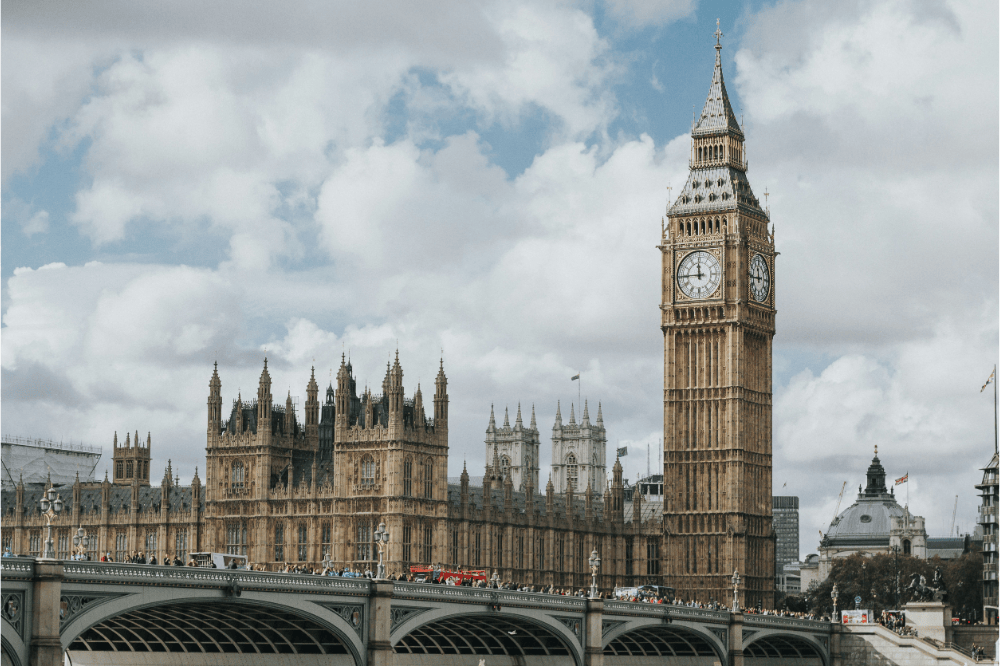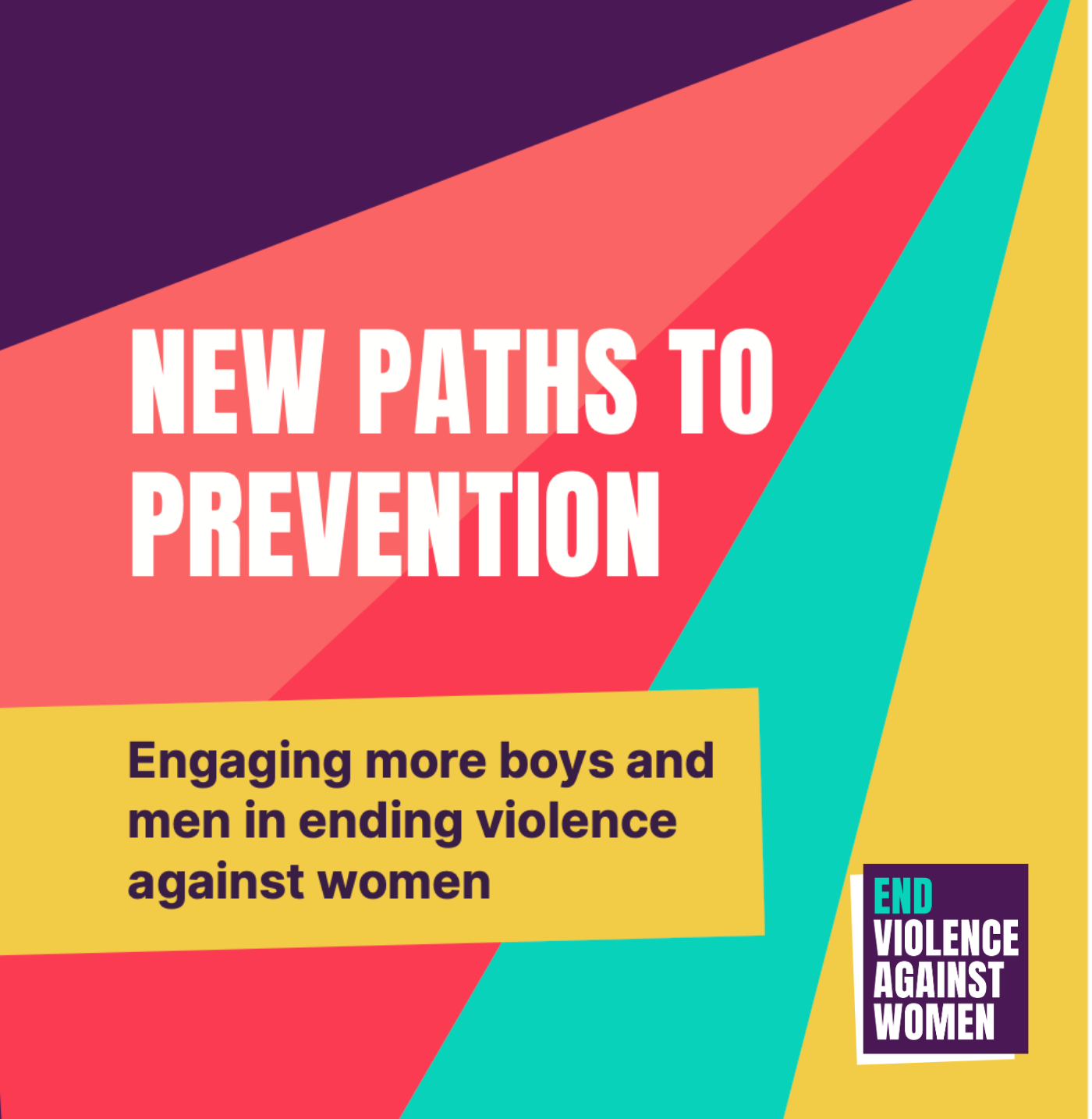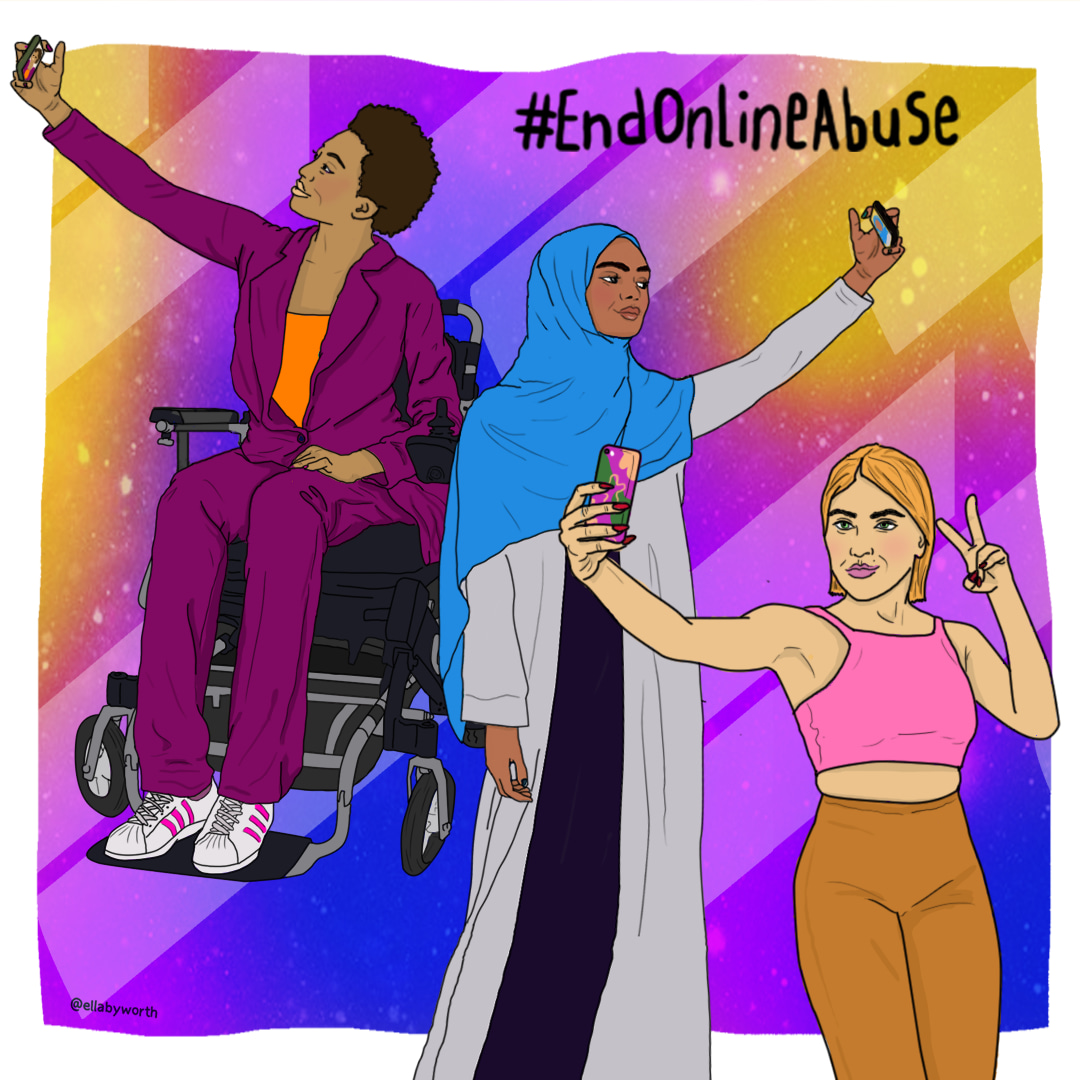 17 Jul
17 Jul
A coalition of experts including the End Violence Against Women Coalition, Glitch, Refuge, Carnegie UK, NSPCC, 5Rights and Professors Clare McGlynn and Lorna Woods have come together for the first time to create a ready-to-use set of guidelines, or ‘Code of Practice’ to tackle violence against women and girls online.
If adopted, the code would mean that for the first time, social media companies would be regulated to prevent and respond to violence against women and girls perpetrated on their platforms, including domestic abuse, stalking, and online grooming of girls, and Ofcom would have the power to hold them to account.
The coalition of experts call on the Government to amend the Online Safety Bill and introduce this Code of Practice, making tackling online violence against women and girls a priority.
As it stands, the Bill – which is currently before Parliament and an attempt by the Government to regulate social media platforms – does not even mention women, misogyny, or violence against women and girls.
If the Code of Practice was adopted, the UK would become the first country in the world to hold tech companies to account on tackling violence against women and girls.
In practice, it would mean that companies such as Twitter, Facebook, Instagram and Tiktok would be required to understand, address and respond to online violence against women and girls and put systems in place to help prevent perpetrators using their platforms to abuse, stalk, harass, monitor and control survivors.
The scale of online violence against women and girls is vast. One in three UK women have experienced online abuse or harassment on social media or another online platform, rising to 62% of young women. Of these 1 in 3 women, 1 in 6 experienced this abuse from a partner or ex-partner. And data from 2017-2021 shows that 4 in 5 victims of online grooming offences are girls.
Andrea Simon, Director of the End Violence Against Women Coalition, said:
“The Government wants to make the internet safer for all, but it won’t be able to do this unless the Online Safety Bill meets the rights and needs of women and girls, including those who experience discrimination and inequality on the basis of their race, sexuality or disability.
“We’ve shown that a VAWG Code of Practice can be comprehensive, robust and workable, and assert a clear expectation on tech companies as to how they should prevent and respond to violence against women and girls.
“Including a code of practice in this area is a really important way the Government can have a hugely positive impact on women and girls’ experiences in online spaces.”
Ruth Davison, CEO of Refuge, said:
“Despite the sheer scale of online violence against women and girls, there is currently no legal obligation on big tech companies to do anything about it. Refuge supports women every day who have experienced horrifying online abuse, so it’s of huge concern to us.
“Adopting this Code of Practice is a simple and effective way for the Government to strengthen the Online Safety Bill and provide assurances that they are serious about making the internet a safer place for women and girls. We hope they will take this opportunity.”
Eva Okunbor, Acting CEO of Glitch, said:
“Black women are 84% more likely to experience abuse than their white counterparts on some platforms. These guidelines for tech companies will hold them to account on making platforms safer for women and girls, particularly those who are most marginalised.
“Without appropriate guidelines, there is no accountability for the endemic violence against women and girls in online spaces”
Sir Peter Wanless, NSPCC CEO, said:
“Girls face very distinct and increased risks on social media, with more than four in five online grooming crimes targeting girls and 97% of child abuse material featuring the sexual abuse of girls.Yet despite the huge scale of avoidable harm girls are suffering online tech firms have done little to recognise the specific risks their sites cause to girls and take action to prevent it.
“This code of practice should be adopted into the Online Safety Bill to further bolster its response to child protection and send a clear message from Government to tech firms that ending the tsunami of violence against women and girls online must be a priority.”
ENDS
Media contact
Sinead Geoghegan, Communications Manager, sinead.geoghegan@evaw.org.uk, 07960 744 502
Notes to Editors
- A range of voices from Refuge, EVAW, and the NSPCC are available for broadcast, further comment and on background conversations. Please get in touch with florri_burton@refuge.org.uk
- Cecilia*, a survivor of tech abuse supported by Refuge, said:
“One of the most devastating impacts of the tech abuse I experienced from my abusive ex-partner was being humiliated by him on social media. Even before I escaped him, my abuser was always posting things online. I never felt comfortable with how much he wanted to share. Then his abuse escalated and he began posting abusive messages about me on social media for all to see. He messaged everyone we knew with lies about me and even used community group chats and forums to tarnish my name. It was so humiliating. I lost friends and I lost my standing in the community. It affected my ability to provide a supportive, community environment for my child. Social media platforms make it very difficult to report this type of abuse and I had very little faith in them to actually do anything about the abuse I was experiencing. When you’re experiencing domestic abuse, the last thing you want to do is fill out a form with only an “ABC” of options for what’s going on. It’s more complicated than that and not something that an algorithm can just figure out.
Social media platforms must provide more options for women like me and the government has an opportunity to ensure this happens. The government must also do more to raise awareness of how this type of abuse affects women, because I felt that there was a general lack of awareness within my community that what I was going through was actually tech abuse.” - Prof Lorna Woods, Professor of Internet Law at Essex University said:
“A systemic approach to online harm reduction – built on risk assessment and mitigation – is the best way to address online harms. While this approach, in part, underpins the Online Safety Bill, its principles need to be translated into practical codes, such as this VAWG code. The code is cross-cutting, demonstrating that design choices have many impacts in multiple content domains which do not neatly fall into the categories of content identified in the Bill. It will go a long way to providing a roadmap for the government and Ofcom to start to address the prevalence and impact of online VAWG.” - Sarah Davidson, Carnegie UK CEO, said:
“We are delighted, along with our long-time expert collaborator, Professor Lorna Woods, to have played a part in the development of this Code, which builds on the work we have led previously in developing a code of practice for hate speech. Our approach is built on collaboration and convening – and the Code is testament to the effectiveness of that approach, bringing together academics, campaigners, VAWG charities and survivors, and tech platforms in its development. We look forward to continuing to work with this coalition, as well as policymakers and regulators, in making its adoption a reality.” - Refuge research has shown that more than one in three UK women (equivalent to 11 million women) have experienced online abuse or harassment on social media or another online platform, rising to a staggering 62% of young women. Of these 1 in 3 women, 1 in 6 experienced this abuse from a partner or ex-partner, meaning almost 2 million women have been abused in this way. Read the Unsocial Spaces report: https://www.refuge.org.uk/wp-content/uploads/2021/10/Unsocial-Spaces-for-web.pdf
- Victims in 84% of online grooming cases are girls https://www.theguardian.com/society/2021/mar/28/victims-in-84-of-online-grooming-cases-are-girls
- Black women are 84% more likely to experience abuse than their white counterparts on some platforms https://www.amnesty.org/en/latest/news/2018/12/crowdsourced-twitter-study-reveals-shocking-scale-of-online-abuse-against-women/
Recommended ARTICLES
 17 Jul
17 Jul
 15 Jul
15 Jul
 14 Jul
14 Jul

